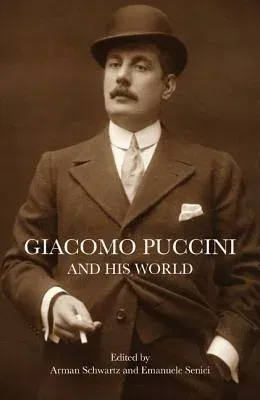Giacomo Puccini (1858-1924) is the world's most frequently performed
operatic composer, yet he is only beginning to receive serious scholarly
attention. In Giacomo Puccini and His World, an international roster
of music specialists, several writing on Puccini for the first time,
offers a variety of new critical perspectives on the composer and his
works. Containing discussions of all of Puccini's operas from Manon
Lescaut (1893) to Turandot (1926), this volume aims to move beyond
clichés of the composer as a Romantic epigone and to resituate him at
the heart of early twentieth-century musical modernity.
This collection's essays explore Puccini's engagement with spoken
theater and operetta, and with new technologies like photography and
cinema. Other essays consider the philosophical problems raised by
"realist" opera, discuss the composer's place in a variety of
cosmopolitan formations, and reevaluate Puccini's orientalism and his
complex interactions with the Italian fascist state. A rich array of
primary source material, including previously unpublished letters and
documents, provides vital information on Puccini's interactions with
singers, conductors, and stage directors, and on the early reception of
the verismo movement. Excerpts from Fausto Torrefranca's notorious
Giacomo Puccini and International Opera, perhaps the most vicious
diatribe ever directed against the composer, appear here in English for
the first time.
The contributors are Micaela Baranello, Leon Botstein, Alessandra
Campana, Delia Casadei, Ben Earle, Elaine Fitz Gibbon, Walter Frisch,
Michele Girardi, Arthur Groos, Steven Huebner, Ellen Lockhart,
Christopher Morris, Arman Schwartz, Emanuele Senici, and Alexandra
Wilson.

